Jennifer Sweeton – 2-Day Seminar: EMDR: A Rapid, Safe, and Proven Treatment for Trauma
Description
Handouts
| Manual – EMDR (8.71 MB) | 102 Pages | Available after Purchase |
Outline
Trauma and Neuroscience
- Key brain areas involved in trauma
- Polyvagal Theory, and types of freeze responses
- Trauma and insecure attachment
- The neuroscience of developmental trauma
- Clinical implications of the freeze response
How the EMDR Approach Works
- The neuroscience of exposure therapy and cognitive therapy
- The neuroscience of relaxation exercises
- EMDR and other “transformative therapies”
- Why EMDR works so well from a brain perspective
Trauma Symptoms and Assessment Tools
- Traumatic memories and intrusive thoughts
- Phobias and anxiety: Insula hyperactivation
- Emotional hijackings and implicit memory
- Avoidance cluster of symptoms
- Why treating avoidance in trauma is critical
- DSM-5® symptoms in a nutshell
- Connecting to a diagnosis
- Simple vs. complex trauma
- Intergenerational trauma
- Symptom clusters and physical manifestations
- CAPS-5 and PCL-5
- Primary Care PTSD Screen
- Dual diagnosis
Overcome Avoidance with EMDR
- Dual awareness
- What you are thinking about is the network you’re in
- Activate networks for change
- Neurons that fire together, wire together (Hebb’s Rule)
- EMDR as neuroentrainment
When to Use EMDR in Treatment
- Demonstrations and experiential exercises
- Single event trauma
- Anxiety disorders involving imaginal exposure
EMDR Trauma Treatment: The Original 8-Phase Model
- Client history and treatment planning
- How to resource: Create a safe space
- Assessment: Choose a target, SUDS, connect with the image/emotions/thought
- Desensitization: Tactile vs. auditory vs. eye movement
- How to use touchpoints, Theratapper, CDs
- Positive Cognition Installation: Likert scale 1-7
- Body Scan: Locate tension and distress in the body
- Closure: Close the neural network and the 6-hour window
- Re-evaluation
Demonstration of Original 8-Phase Model
- Presenter demonstration
- Attendee dyad practice of the 8-phase model
EMDR Techniques to Resolve Traumatic Memories
- Modifications for Complex/Developmental Trauma
- Do not use standard protocol – Rationale for modifications
- Resourcing strategies
- Techniques to reinforce and activate positive neural networks
- Relevance of Polyvagal Theory, early trauma, and EMDR
- Sensory motor modifications and somatic approaches
- How to build Dual Awareness
- EMDR techniques to bring traumatic memories from the limbic system into the prefrontal cortex
Attachment-Based EMDR: Strategies to Treat Relational Trauma
- Strategies to foster the critical connection between client and therapist
- Mirror neuron activation
- How to emphasize safety during sessions
- Guidance on order of operations
Research Limitations and Potential Risks
Faculty

Jennifer Sweeton, Psy.D., M.S., M.A.Related seminars and products:12
Organizational Consultant, Clinical Psychologist
Mind Works Professional Education Inc
Dr. Jennifer Sweeton is a licensed clinical psychologist, author, and internationally-recognized expert on trauma, anxiety, and the neuroscience of mental health. Dr. Sweeton has been practicing EMDR for nearly a decade and has treated a variety of populations using EMDR and other memory reconsolidation approaches, including combat veterans, individuals with PTSD and complex trauma, and those suffering from treatment-resistant anxiety.
She completed her doctoral training at the Stanford University School of Medicine, the Pacific Graduate School of Psychology, and the National Center for PTSD. Additionally, she holds a master’s degree in affective neuroscience from Stanford University, and studied behavioral genetics at Harvard University.
Dr. Sweeton resides in the greater Kansas City area, where she owns a group private practice, Kansas City Mental Health Associates. She is a past president of the Oklahoma Psychological Association and holds adjunct faculty appointments at the University of Kansas School of Medicine. She is the president-elect of the Greater Kansas City Psychological Association. Dr. Sweeton offers psychological services to clients in Oklahoma, Kansas, and internationally, and is a sought-after trauma and neuroscience expert who has trained thousands of mental health professionals in her workshops.
Speaker Disclosures:
Financial: Jennifer Sweeton is in private practice. She has an employment relationship with the Oklahoma City VAMC. Dr. Sweeton receives a speaking honorarium from PESI, Inc.
Non-financial: Jennifer Sweeton has no relevant non-financial relationship to disclose.
Instant Access Available
Downloadable Content

Get Instant Download Jennifer Sweeton – 2-Day Seminar: EMDR: A Rapid, Safe, and Proven Treatment for Trauma at Offimc.click Now!
Delivery Information
- Upon ordering the product, a delivery email with download instructions will be sent immediately to you so that you may download your files. If you log in (or create an account) prior to purchase you will also be able to access your downloads from your account dashboard.
- It is a digital download, so please download the order items and save them to your hard drive. In case the link is broken for any reason, please contact us and we will resend the new download link to you.
- If you don't receive the download link, please don’t worry about that. We will update and notify you as soon as possible from 8:00 AM – 8:00 PM (UTC+8).
- Please Contact Us if there are any further questions or concerns you may have. We are always happy to assist!



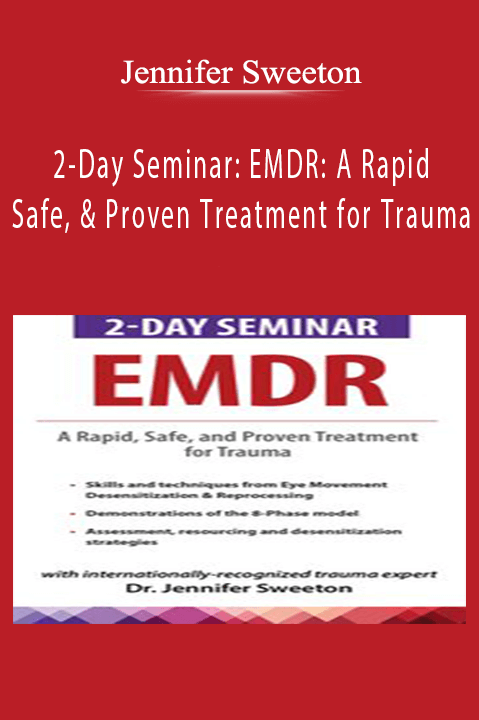



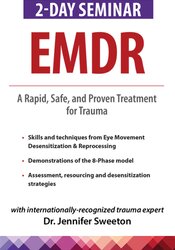
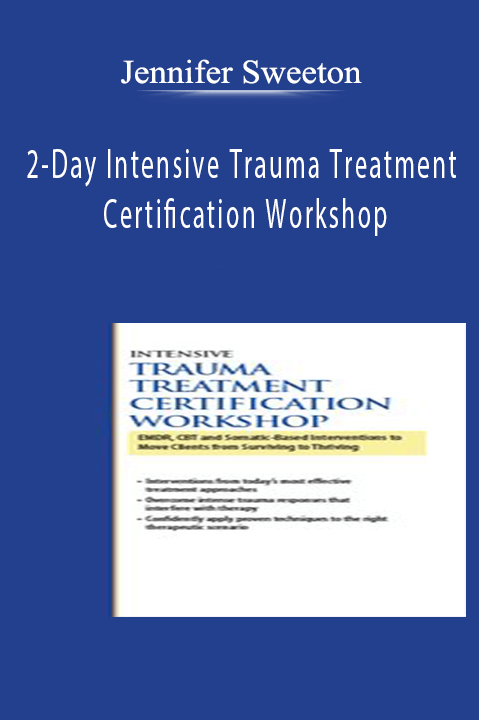
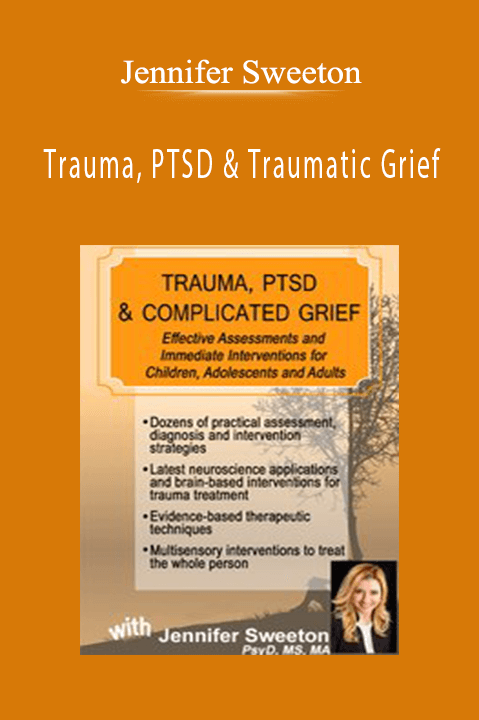
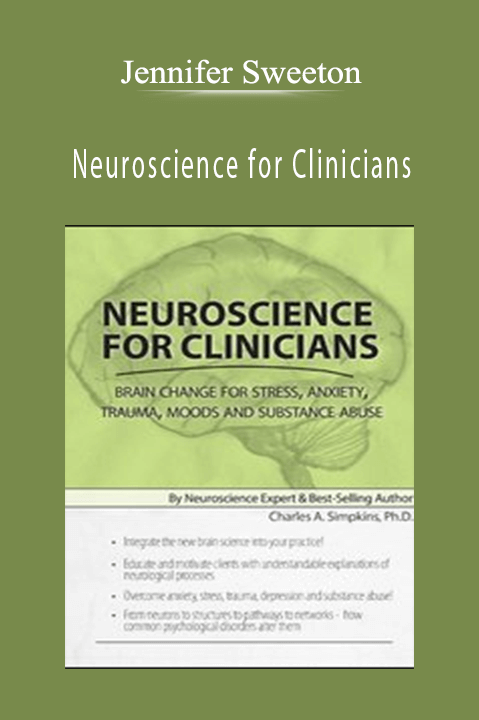
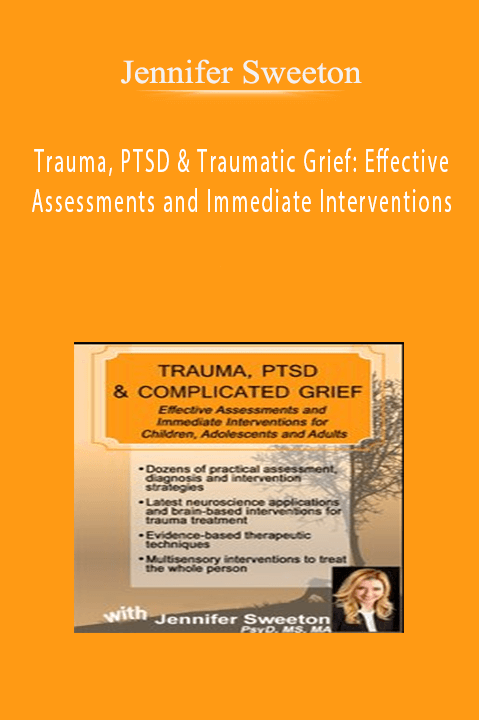
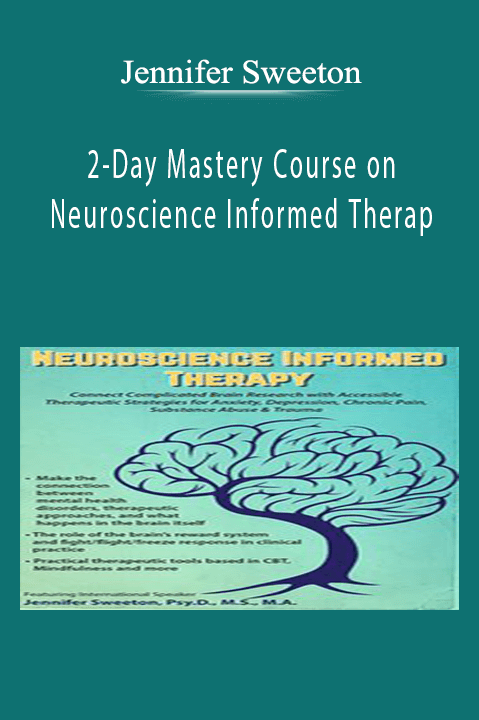
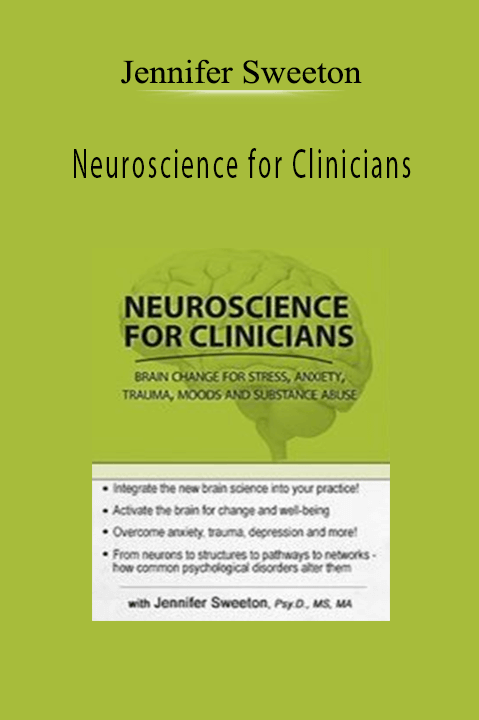
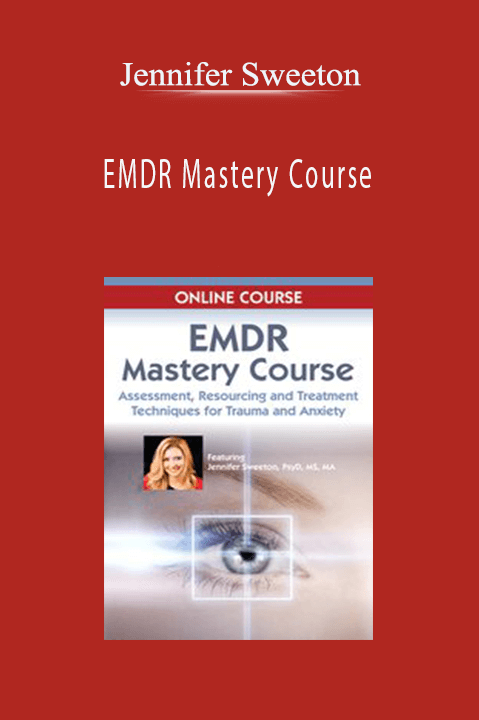
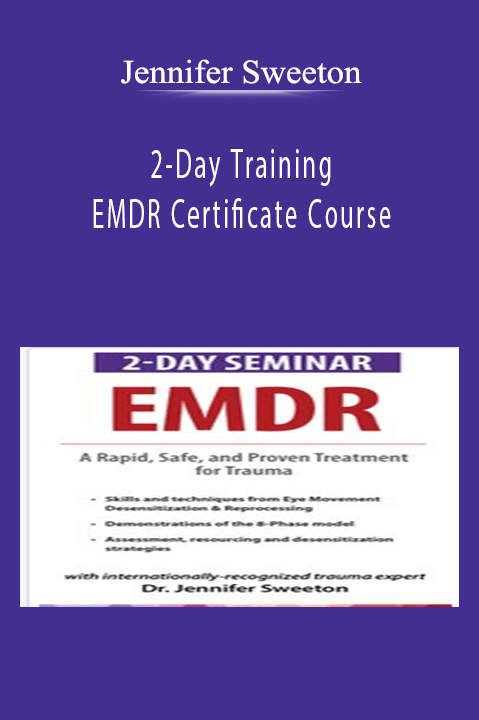
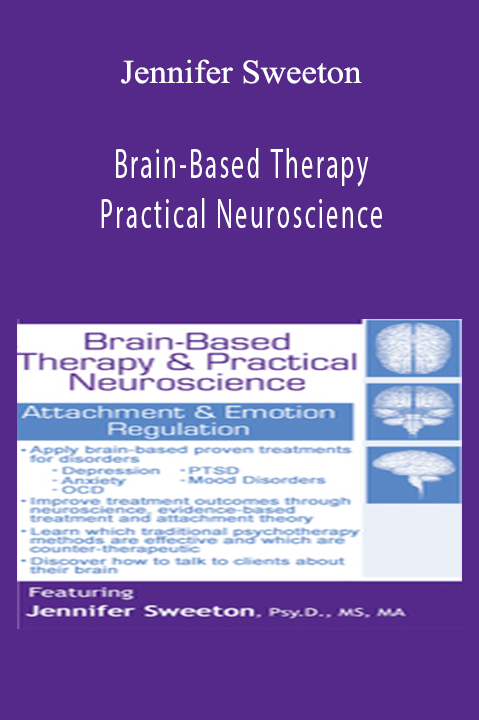
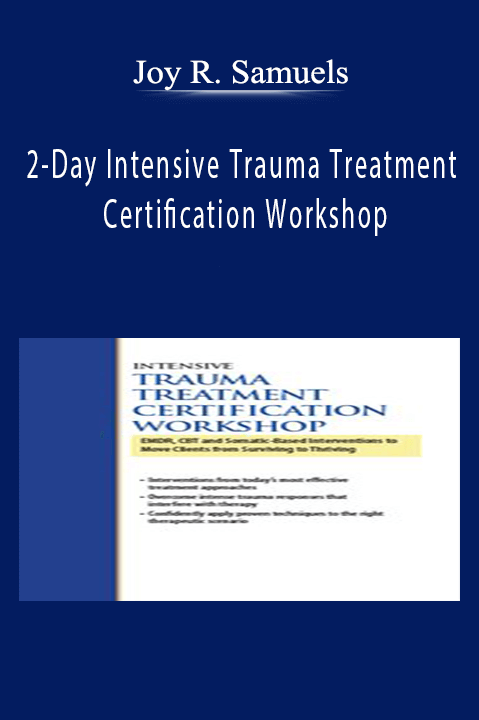
6 reviews for 2–Day Seminar: EMDR: A Rapid, Safe, and Proven Treatment for Trauma – Jennifer Sweeton
There are no reviews yet.